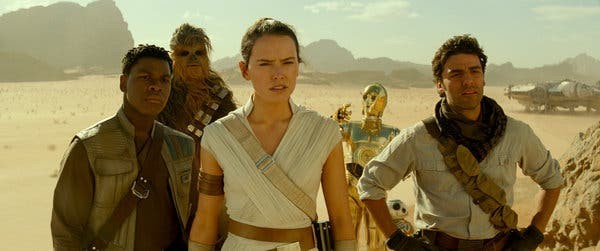
John Boyega, Joonas Suotamo, Daisy Ridley, Anthony Daniels, and Oscar Isaac in Star Wars: The Rise of Skywalker.
So many thoughts. Where to begin?
How about a sports metaphor: There’s playing to win, then there’s playing not to lose. There’s a subtle, but significant, difference between the two approaches. Playing to win means being fit, smart, and prepared, adopting an aggressive attitude, and taking chances. You can be fit, smart, and prepared when playing not to lose, but you don’t take chances. You play not to lose when you feel like you have something to lose. You’ve been successful, you think you’re in a good position, and you want to cruise to the end of the season. But playing not to lose is a good way to guarantee a loss. You abandon successful strategies because they suddenly feel too risky. You start to doubt yourself. You lose the plot.
In Star Wars: The Rise of Skywalker, director J. J. Abrams is playing not to lose.
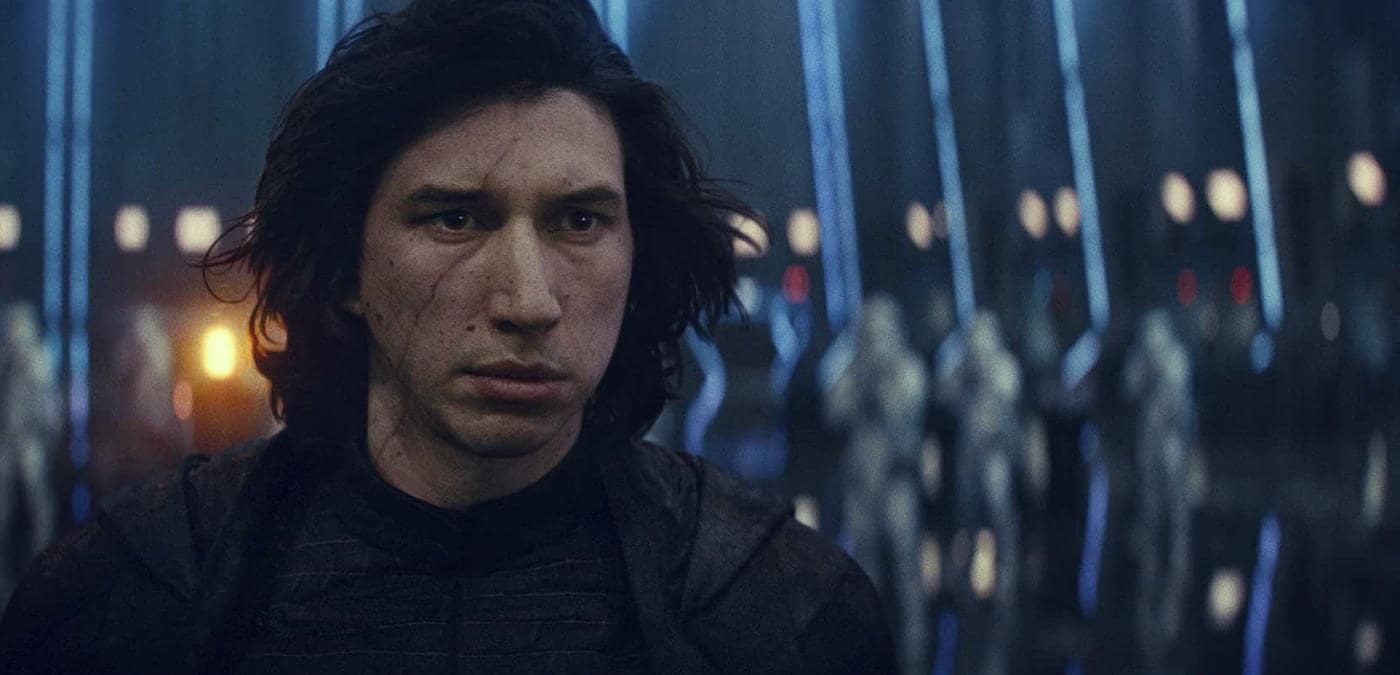
Adam Driver as Kylo Ren
I’m an old-school Star Wars fan who had his life changed in a movie theater in 1977. I’ve been a fan of the franchise through good movies and bad. I had fun watching The Rise of Skywalker on opening night. But afterwards, during the traditional fan debates in the lobby, there were questions. As my wife said, “I have notes.”
First of all, I have held my tongue on this issue for fear of sounding too nerdy, but here it is: J.J. Abrams, hyperspace does not work that way.
Now you, being a rational human being who lives on planet Earth, might say “Wow, that’s what’s wrong with nitpicking Internet fandom these days!” But I would disagree. It’s a kind of like broken window theory: It’s a small sign of neglect that points to bigger problems.
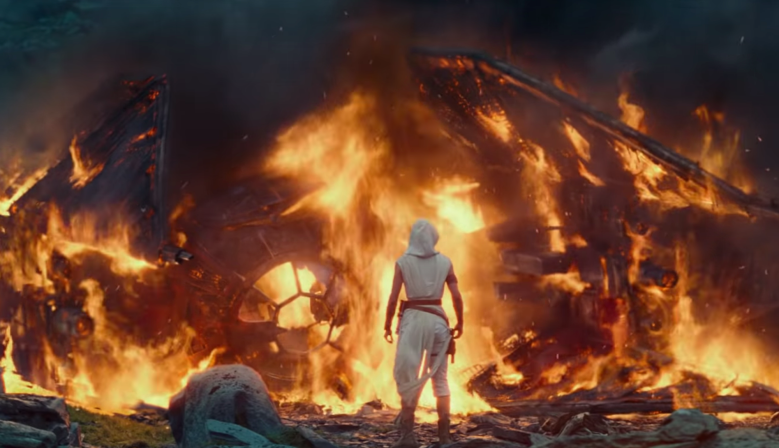
But J.J’s gonna J.J., and in The Rise of Skywalker, his strengths and weaknesses get the kind of full expression that only $250 million can buy. His strengths are that he always leans into character. There are good performances here, led by Anthony Daniels as C-3PO. Daniels (who, incidentally, is one of the top-grossing actors in all of film history because he is the only actor to have appeared in all 9 films of the Skywalker family saga) has always been ace comic relief, especially given the fact that he’s played nine films in the most uncomfortable and inexpressive costume imaginable. His final film gives him moments of pathos, and Daniels delivers so beautifully it looks effortless, and is thus easily overlooked. Such is the lot of the robotic character actor.
Oscar Isaac, who is a fantastic actor, plays the best single scene of the film with Keri Russell Poe Dameron’s newly introduced ex-girlfriend, the spice smuggler Zorri Bliss. Daisy Ridley is comfortable in Rey’s skin, and her scenes largely play to her physicality. The young girl dressed as Rey at the Malco Powerhouse screening on opening night testifies to how deeply she has connected with the audience. Her frenemy relationship with Kylo Ren/Ben Solo (Adam Driver, excellent as always) provides the film’s emotional spine. When Isaac and Ridley go on a mission with John Boyega’s Finn in the Millennium Falcon, the film hums along for a while, powered by their chemistry. But just when the sequence should be reaching its climax, Abrams fails to stick the landing, and it fizzles.
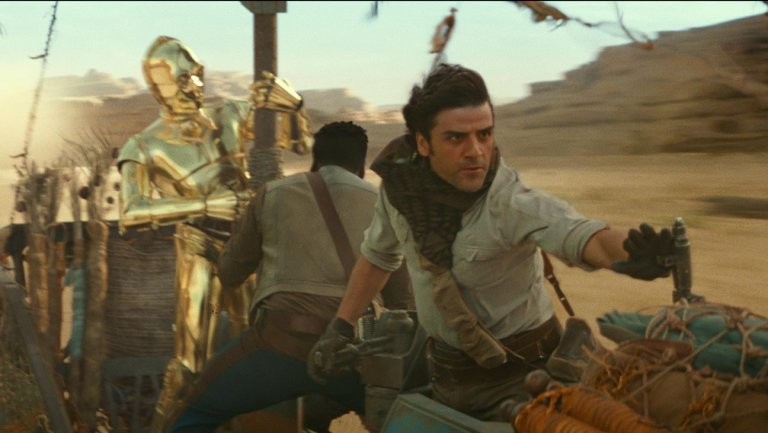
Abrams’ weakness is that he’s only as good as the writer he’s paired with. The Force Awakens was the best film of his career, and he co-wrote it with the legendary Lawrence Kasdan. The Rise of Skywalker must tie up 42 years worth of loose plot ends. The final installment of the sequel trilogy was also handicapped by the untimely death of Carrie Fisher, whose General Leia was to have had a much wider role in the film. So maybe sticking the landing was always impossible. It would be tall order for anyone, but Chris Terrio, the guy who wrote Batman v Superman: Dawn of Justice, is not up to the task. It’s not like the prequels, which often had the air of immaculately crafted renderings of scripts that should have gone through a couple of more drafts. The Rise of Skywalker feels like a checklist movie, with superfluous scenes shoehorned in to fulfill perceived audience wishes. Unrelenting fan service is playing not to lose.
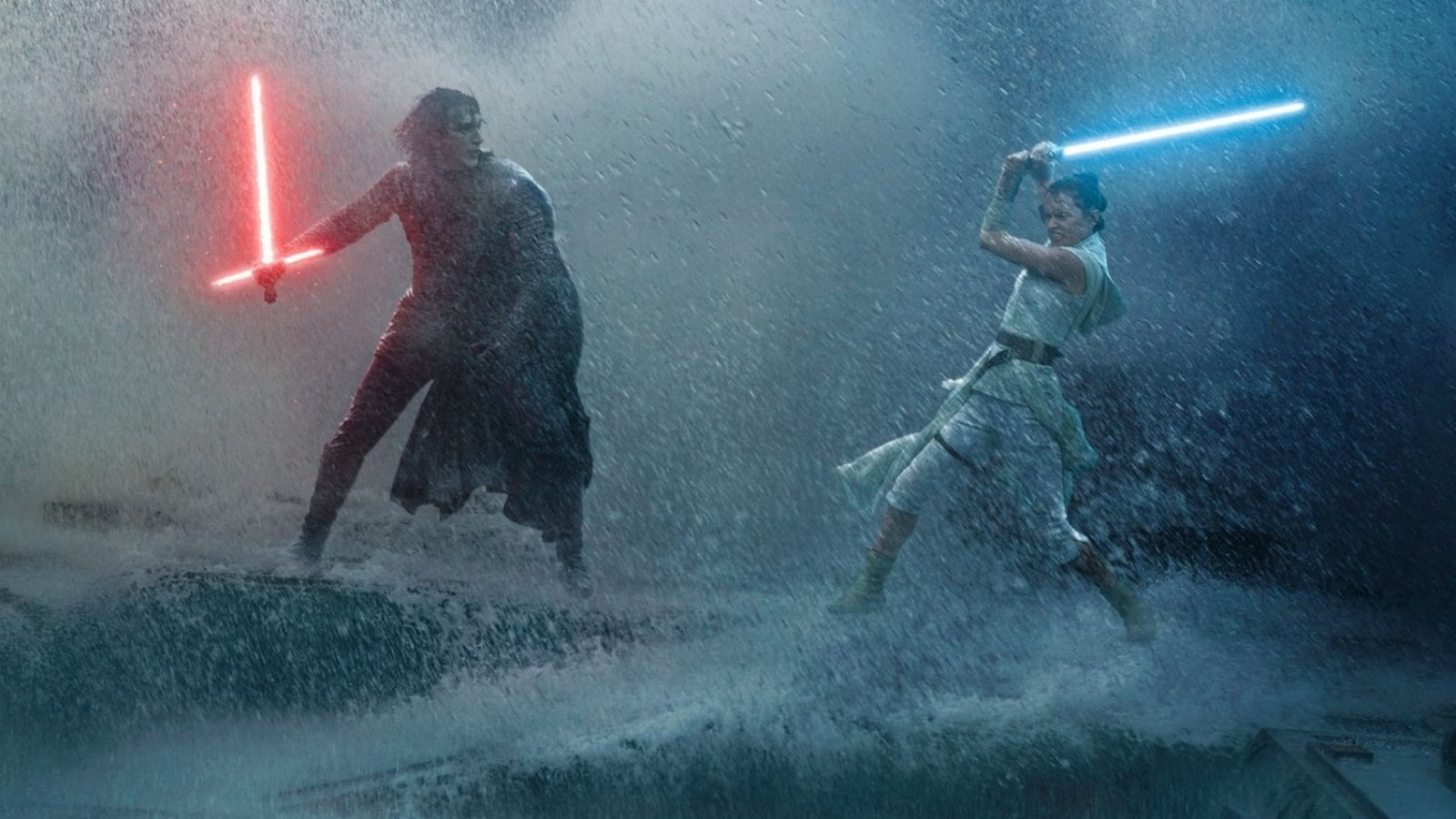
So I’m a true fan, with love forged on the elementary school playgrounds of 1978. Do I feel properly serviced? Like I said, I had a great time in the theater with my fellow geeks, I teared up at the appropriate times, and the mood was generally positive afterwards. Ultimately, The Rise of Skywalker is most comparable to Return of the Jedi. There are some great high points, but it lacks unity. There’s a parallel here to what happened with the last season of Game of Thrones. There was a decision to go with spectacle rather than doing the hard and risky work in the writers’ room. There’s no shortage of spectacle, but compared to what the franchise is capable of, it feels like a squandered opportunity.
Star Wars: The Rise of Skywalker
